Louis Menand in The New Yorker:
 Mayor of New York City is famously a dead-end job. The last New York mayor to win higher office was John T. Hoffman, and that was in 1868. He became governor. Every mayor since then has found the way up barred. And, for some, the way up turned into the way down.
Mayor of New York City is famously a dead-end job. The last New York mayor to win higher office was John T. Hoffman, and that was in 1868. He became governor. Every mayor since then has found the way up barred. And, for some, the way up turned into the way down.
The mayors are often a little surprised by this reversal of fortune. The assumption seems to be: If I can govern there, I can govern anywhere. This may or may not be true. What is true is that New York City’s mayors have had a hard time getting non-New Yorkers to vote for them. After all, you’re not likely to be elected President of the United States by promising to make the country more like New York. You basically have to run against your own home town.
When John V. Lindsay, who was elected mayor in 1965 and became one of the country’s highest-profile politicians, ran for President, in 1972, he was forced to drop out after finishing fifth in the Florida primary, where he had counted on getting the votes of retired New Yorkers. He quit politics after a 1980 New York Senate bid, joined two law firms, and made regular appearances on “Good Morning America,” but health problems and the collapse of both firms nearly wiped him out. In 1996, an ally on the City Council arranged for this once charismatic and commanding figure to be given two essentially ceremonial appointments in city government just so he could have health insurance.
More here.

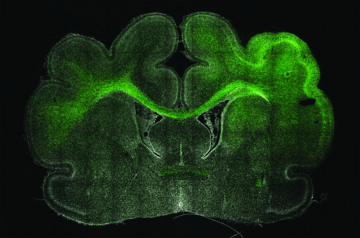 We humans are proud of our big brains, which are responsible for our ability to plan ahead, communicate, and create. Inside our skulls, we pack, on average, 86 billion neurons—up to three times more than those of our primate cousins. For years, researchers have tried to figure out how we manage to develop so many brain cells. Now, they’ve come a step closer: A new study shows a single amino acid change in a metabolic gene helps our brains develop more neurons than other mammals—and more than our extinct cousins, the Neanderthals.
We humans are proud of our big brains, which are responsible for our ability to plan ahead, communicate, and create. Inside our skulls, we pack, on average, 86 billion neurons—up to three times more than those of our primate cousins. For years, researchers have tried to figure out how we manage to develop so many brain cells. Now, they’ve come a step closer: A new study shows a single amino acid change in a metabolic gene helps our brains develop more neurons than other mammals—and more than our extinct cousins, the Neanderthals.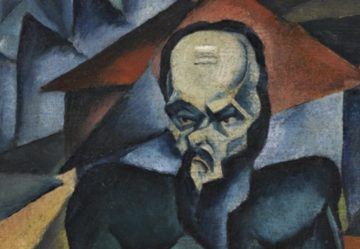 Kevin Birmingham prefaces his account of the tortured progress of the writing of Crime and Punishment with Fyodor Dostoevsky’s terse summation of his novel’s plot: “There’s an evil spirit here.” It’s a statement Birmingham invites us to ponder throughout his masterly book. Can we be disturbed but not necessarily repulsed by the actions of a particularly heinous criminal? Might such a character actually engage our sympathies? In The Sinner and the Saint, Birmingham sets himself the task of revealing the soul of an author, shattered and nearly sunk by the cumulative blows of life, struggling to get close to a murderer’s mind—and he succeeds brilliantly.
Kevin Birmingham prefaces his account of the tortured progress of the writing of Crime and Punishment with Fyodor Dostoevsky’s terse summation of his novel’s plot: “There’s an evil spirit here.” It’s a statement Birmingham invites us to ponder throughout his masterly book. Can we be disturbed but not necessarily repulsed by the actions of a particularly heinous criminal? Might such a character actually engage our sympathies? In The Sinner and the Saint, Birmingham sets himself the task of revealing the soul of an author, shattered and nearly sunk by the cumulative blows of life, struggling to get close to a murderer’s mind—and he succeeds brilliantly. THOUGH I DIDN’T CRY FOR BOWIE, I cried for Issey the way I cried for Leonard Cohen. My best friend wore Issey’s perfume, which bottled the sensation of water on skin. I have a few of his Pleats Please garments, harvested from eBay, and there is a thrifted, asymmetrical, gray ribbed heavy wool pullover sweater that I still regret giving away. It was from the early ’80s, like the raw silk, pleated madder-red smock I still treasure for its color and drape. His garments tend to stay with you. My ninety-six-year-old Parisian mother-in-law recalls an Issey jacket she bought decades ago. It was a green wool—the color of a traveling cloak, she says—unlined, light but warm, with a quality she describes as enveloping, raising her hands as she says this as if to grasp a generous collar to shelter her neck and face against a piercing wind, or an unwelcome glance. This feeling of envelopment, both calming and freeing, is at the heart of Issey Miyake’s oeuvre. You experience the garment as shelter at the same time as its interiority liberates an emotional and expressive pleasure. My mother-in-law’s gestural enactment of her remembered Issey jacket defines the designer’s paradoxical lyricism. His garments wrap you in lightness. There is a kind of phantom smock hidden in everything he made.
THOUGH I DIDN’T CRY FOR BOWIE, I cried for Issey the way I cried for Leonard Cohen. My best friend wore Issey’s perfume, which bottled the sensation of water on skin. I have a few of his Pleats Please garments, harvested from eBay, and there is a thrifted, asymmetrical, gray ribbed heavy wool pullover sweater that I still regret giving away. It was from the early ’80s, like the raw silk, pleated madder-red smock I still treasure for its color and drape. His garments tend to stay with you. My ninety-six-year-old Parisian mother-in-law recalls an Issey jacket she bought decades ago. It was a green wool—the color of a traveling cloak, she says—unlined, light but warm, with a quality she describes as enveloping, raising her hands as she says this as if to grasp a generous collar to shelter her neck and face against a piercing wind, or an unwelcome glance. This feeling of envelopment, both calming and freeing, is at the heart of Issey Miyake’s oeuvre. You experience the garment as shelter at the same time as its interiority liberates an emotional and expressive pleasure. My mother-in-law’s gestural enactment of her remembered Issey jacket defines the designer’s paradoxical lyricism. His garments wrap you in lightness. There is a kind of phantom smock hidden in everything he made. Analytic philosophers avoided the subject of meaning in life till relatively recently. The standard explanation is that they associated it with the meaning of life question they considered bankrupt. But it’s surely also because the subject conflicts with some of the core tendencies of the analytic tradition. “What gives point to life?” is a sweeping question that invites the synoptic approach associated with continental philosophy, not the divide-and-conquer method favored by Anglo-Americans. The question also wears its angst on its sleeve, making it an awkward fit with the dispassionate mode employed in the mainstream academy.
Analytic philosophers avoided the subject of meaning in life till relatively recently. The standard explanation is that they associated it with the meaning of life question they considered bankrupt. But it’s surely also because the subject conflicts with some of the core tendencies of the analytic tradition. “What gives point to life?” is a sweeping question that invites the synoptic approach associated with continental philosophy, not the divide-and-conquer method favored by Anglo-Americans. The question also wears its angst on its sleeve, making it an awkward fit with the dispassionate mode employed in the mainstream academy. Scientists say they have slowed and even reversed some of the devastating and relentless decline caused by motor-neurone disease (MND). The treatment works in only 2% of patients but has been described as “truly remarkable” and a “real moment of hope” for the whole disease. One leading expert said it was the first time she had seen patients improve – but this is not a cure. The MND Association said there was “mounting confidence” in the therapy. MND, also known as amyotrophic-lateral sclerosis (ALS), is caused by the death of the nerves that carry messages from the brain to people’s muscles. It affects their ability to move, talk and even breathe. The disease dramatically shortens people’s lives and most die within two years of being diagnosed.
Scientists say they have slowed and even reversed some of the devastating and relentless decline caused by motor-neurone disease (MND). The treatment works in only 2% of patients but has been described as “truly remarkable” and a “real moment of hope” for the whole disease. One leading expert said it was the first time she had seen patients improve – but this is not a cure. The MND Association said there was “mounting confidence” in the therapy. MND, also known as amyotrophic-lateral sclerosis (ALS), is caused by the death of the nerves that carry messages from the brain to people’s muscles. It affects their ability to move, talk and even breathe. The disease dramatically shortens people’s lives and most die within two years of being diagnosed.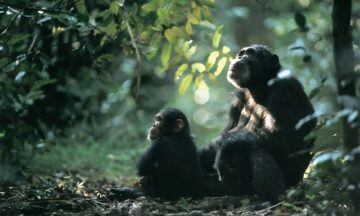 Charles Darwin was, by all accounts, a meek and conflict-averse man. In his written work he tended not to personally attack his adversaries. He rarely gave public lectures, and he never once participated in the fractious head-to-head debates that served as the public proving ground for scientific ideas in Victorian England.
Charles Darwin was, by all accounts, a meek and conflict-averse man. In his written work he tended not to personally attack his adversaries. He rarely gave public lectures, and he never once participated in the fractious head-to-head debates that served as the public proving ground for scientific ideas in Victorian England.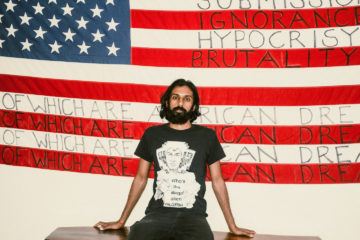 At the end of 2021, I went to see the hardcore-punk act Show Me the Body at Warsaw, a music venue that operates out of an old Polish community center in Brooklyn. As the band set up, I devoured a pierogi and scanned the recesses of the stage for a certain lanky figure staring at a camera viewfinder through curtains of black hair. The lights dimmed in the hall, which looked more suited to a high-school prom than a concert, and the mosh pit opened. Suddenly, he appeared behind the band: the thirty-six-year-old Sunny Singh, an archivist and videographer of hardcore, whose presence at a show has come to be a little mythical, an omen that you’re in the right place for the night.
At the end of 2021, I went to see the hardcore-punk act Show Me the Body at Warsaw, a music venue that operates out of an old Polish community center in Brooklyn. As the band set up, I devoured a pierogi and scanned the recesses of the stage for a certain lanky figure staring at a camera viewfinder through curtains of black hair. The lights dimmed in the hall, which looked more suited to a high-school prom than a concert, and the mosh pit opened. Suddenly, he appeared behind the band: the thirty-six-year-old Sunny Singh, an archivist and videographer of hardcore, whose presence at a show has come to be a little mythical, an omen that you’re in the right place for the night.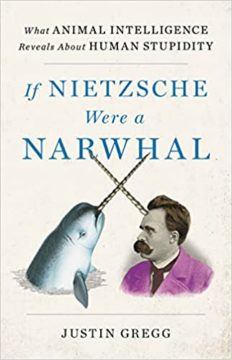 Thinkers and scientists like Gregg and Demuth are presenting readers with the urgent and pressing necessity for a new ethics. The unthinking, extractive, and dominant human treats animals as a lower form of existence, rather than a different form; we assess the environment based on what can be extracted from it. Like our means of communication, our means of travel, of treating disease, and so much else, our ethics need an urgent and pressing update that takes into consideration the understanding of animals. Factory farms, the constant consumption of animal products, and the greedy use of fossil fuels are the seeds of destruction.
Thinkers and scientists like Gregg and Demuth are presenting readers with the urgent and pressing necessity for a new ethics. The unthinking, extractive, and dominant human treats animals as a lower form of existence, rather than a different form; we assess the environment based on what can be extracted from it. Like our means of communication, our means of travel, of treating disease, and so much else, our ethics need an urgent and pressing update that takes into consideration the understanding of animals. Factory farms, the constant consumption of animal products, and the greedy use of fossil fuels are the seeds of destruction.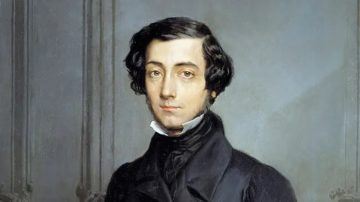 Tocqueville’s parents were imprisoned following the Revolution, but survived the execution planned for them by Robespierre only because he was guillotined first. The family benefited from the Restoration, and after the Revolution of 1830 Tocqueville swore loyalty to the new regime—hesitantly. His political position was precarious, his career prospects slim, and eager for personal independence, he set out for America with his friend Gustave de Beaumont to study penitentiary systems and test his suspicion that the key to France’s future could be found in America’s present.
Tocqueville’s parents were imprisoned following the Revolution, but survived the execution planned for them by Robespierre only because he was guillotined first. The family benefited from the Restoration, and after the Revolution of 1830 Tocqueville swore loyalty to the new regime—hesitantly. His political position was precarious, his career prospects slim, and eager for personal independence, he set out for America with his friend Gustave de Beaumont to study penitentiary systems and test his suspicion that the key to France’s future could be found in America’s present. WHEN PHYSICIAN GABOR MATÉ
WHEN PHYSICIAN GABOR MATÉ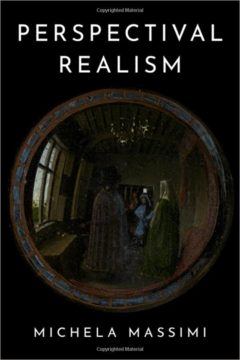 Antivax raises deep questions about what science is and does—concerns that have long been debated by scientists and philosophers. Michela Massimi is among them. A philosopher at the University of Edinburgh, she has pioneered a distinctive form of “perspectivism” in the philosophy of science. Her magisterial new book, Perspectival Realism, is the culmination of two decades of work on this score. It stems, she tells us, from “worries of a concerned citizen in a society where trust in science was being eroded under the pressure of powerful lobbies,” anxieties reinforced as she worked on the final draft during the pandemic. Her aim is not to address Antivax directly, but to answer a more fundamental need: developing an accurate picture of scientific practice, in order to enable citizens and scholars alike to identify the sources of its triumphs and its limitations.
Antivax raises deep questions about what science is and does—concerns that have long been debated by scientists and philosophers. Michela Massimi is among them. A philosopher at the University of Edinburgh, she has pioneered a distinctive form of “perspectivism” in the philosophy of science. Her magisterial new book, Perspectival Realism, is the culmination of two decades of work on this score. It stems, she tells us, from “worries of a concerned citizen in a society where trust in science was being eroded under the pressure of powerful lobbies,” anxieties reinforced as she worked on the final draft during the pandemic. Her aim is not to address Antivax directly, but to answer a more fundamental need: developing an accurate picture of scientific practice, in order to enable citizens and scholars alike to identify the sources of its triumphs and its limitations. Orhan Pamuk likes to play new games. Every one of his books has differed markedly from the others, yet each shares a capacity for disconcerting the reader. This one is long and intellectually capacious. It tackles big subjects: nationalism and the way nations are imagined into being; ethnic and religious conflict; the decline of an empire; the political repercussions of a pandemic. It includes many deaths.
Orhan Pamuk likes to play new games. Every one of his books has differed markedly from the others, yet each shares a capacity for disconcerting the reader. This one is long and intellectually capacious. It tackles big subjects: nationalism and the way nations are imagined into being; ethnic and religious conflict; the decline of an empire; the political repercussions of a pandemic. It includes many deaths.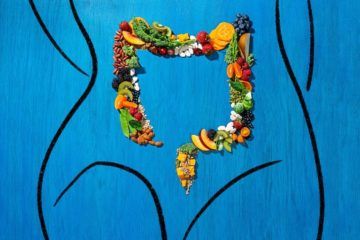 Every time you eat, you are feeding trillions of bacteria, viruses and fungi that live inside your gut. But are you feeding them the right foods? Scientists used to know very little about these communities of microbes that collectively make up the gut microbiota, also known as your gut microbiome. But a growing body of research suggests that these vast communities of microbes are the gateway to your health and well-being — and that one of the simplest and most powerful ways to shape and nurture them is through your diet.
Every time you eat, you are feeding trillions of bacteria, viruses and fungi that live inside your gut. But are you feeding them the right foods? Scientists used to know very little about these communities of microbes that collectively make up the gut microbiota, also known as your gut microbiome. But a growing body of research suggests that these vast communities of microbes are the gateway to your health and well-being — and that one of the simplest and most powerful ways to shape and nurture them is through your diet.